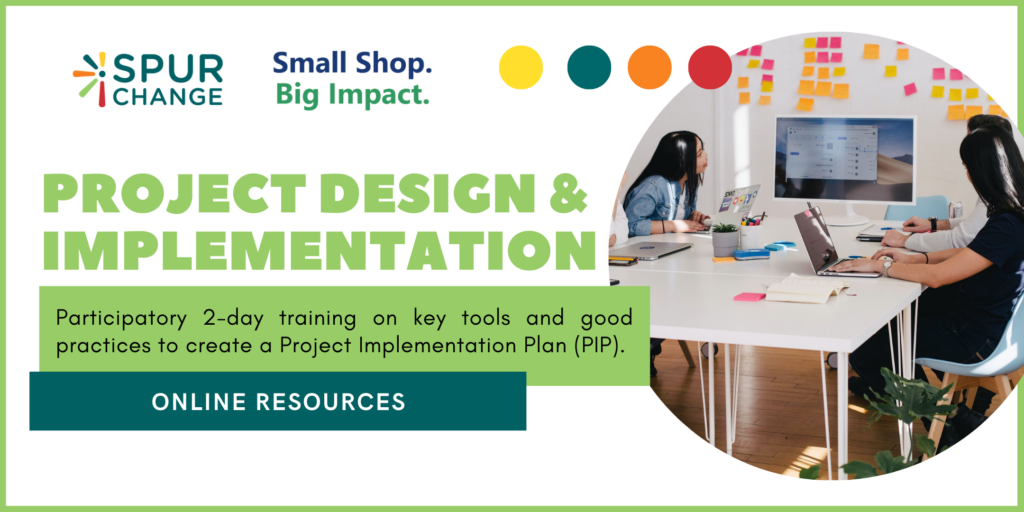
This two-day intensive workshop organized by Spur change in collaboration with Small Shop Big Impact was a practical hands-on experience for participants to dive deeper into the process of developing a Project Implementation Plan (PIP).
These online tools are designed to support past participants and those who may be interested in project implementation and design. Future opportunities for small and medium organizations (SMOs) to attend this training may be available in collaboration with your local ICN council. Included are worksheets, outlines, and slides used throughout the training, separated into four sessions over the two days. The learning is applied through case studies, examples and discussions about the different elements of a PIP.
►Meet the trainer

Claire Holloway Wadhwani
Claire is a consultant providing tailored support to diverse non-profit projects in Canada and abroad. Through her company, Small Shop Big Impact, Claire has over 25 years of experience in NGO management, project design, grant-writing, partnership building, and impact assessment. Her experience ranges in working from NGOs in Canada, East Africa and India focused on advancing gender equality, strengthening food security, promoting health and livelihoods. The aim of SSBI is to help non-profits maximize impact on a budget. Claire regularly shares her knowledge and experience in community project building and impact assessment through facilitation of workshops and webinars in collaboration with networks and partners across Canada. Claire has a passion for grassroots participation and the efficacy of community-based initiatives as both a means of advancing local development goals and in effectively engaging with community allies. To learn more about Claire, visit her LinkedIn page.
